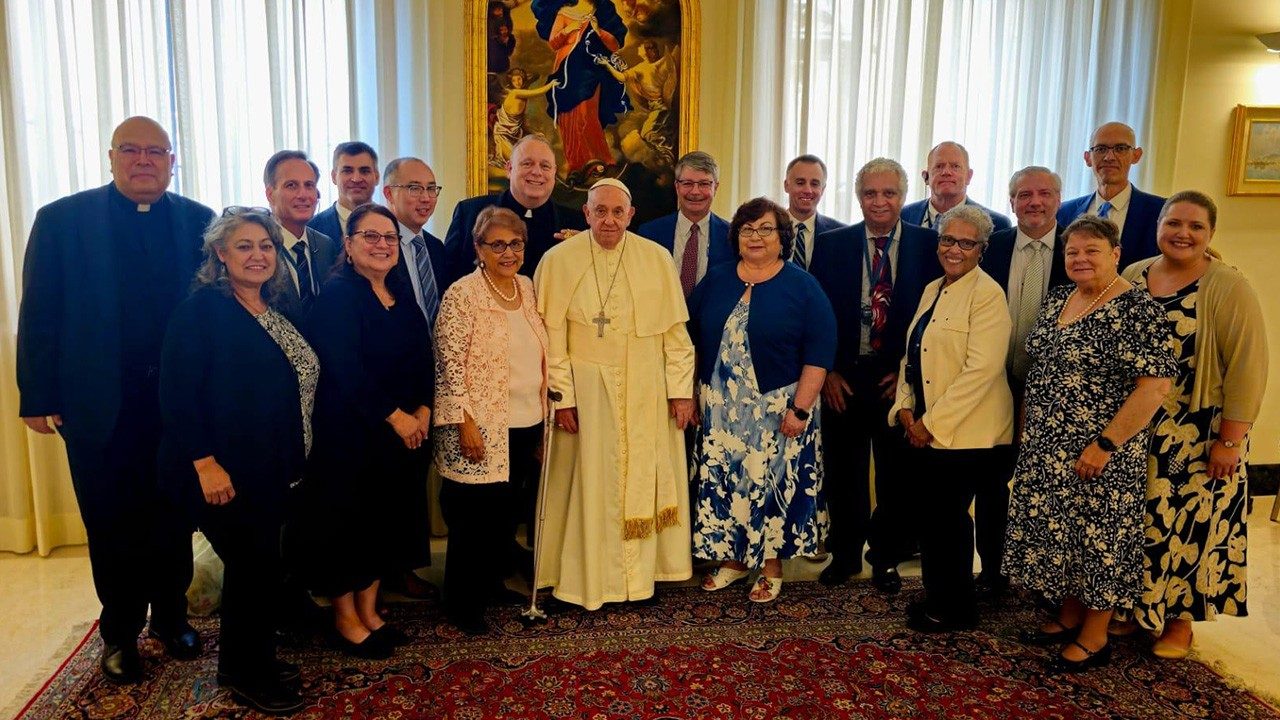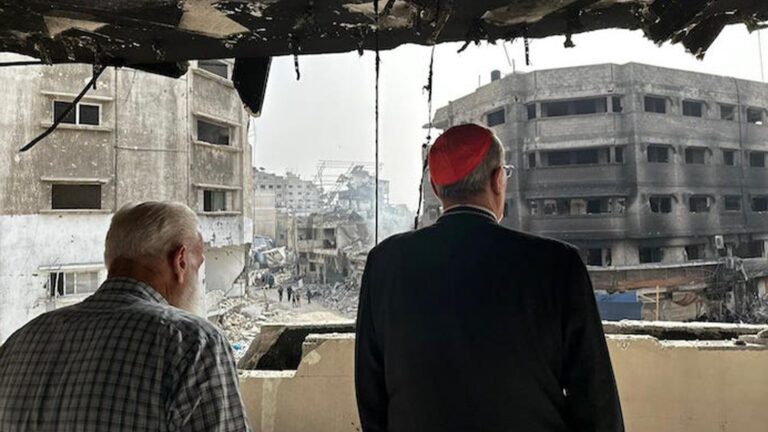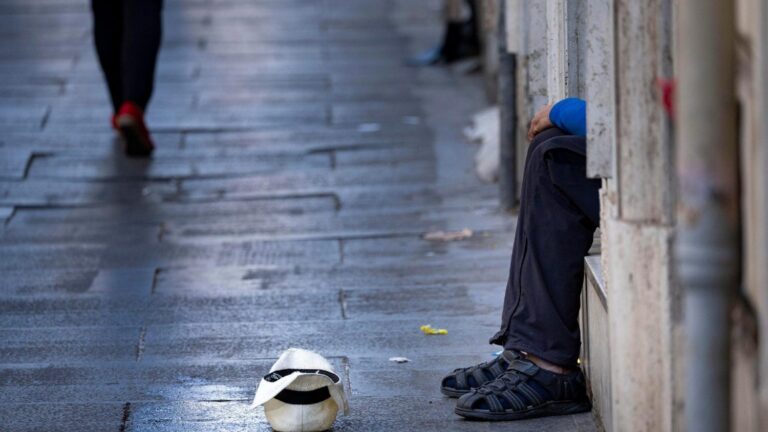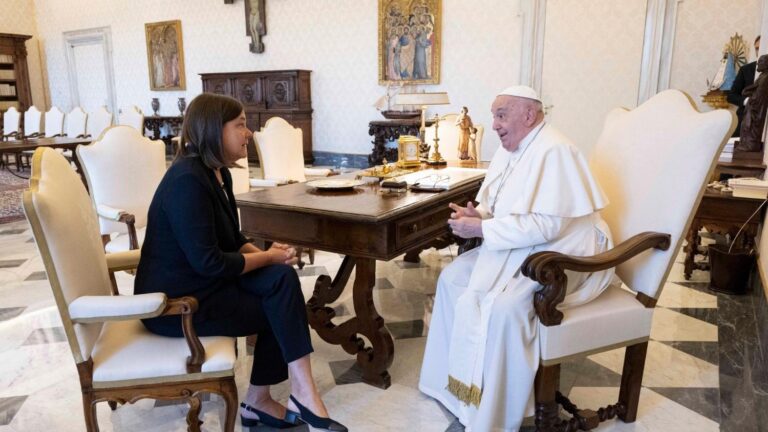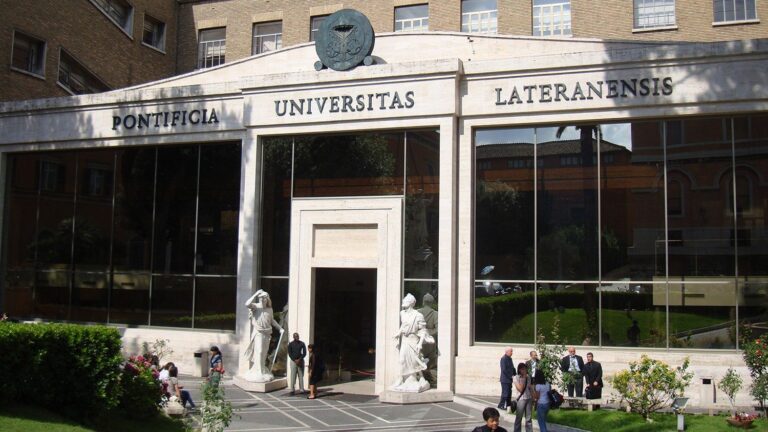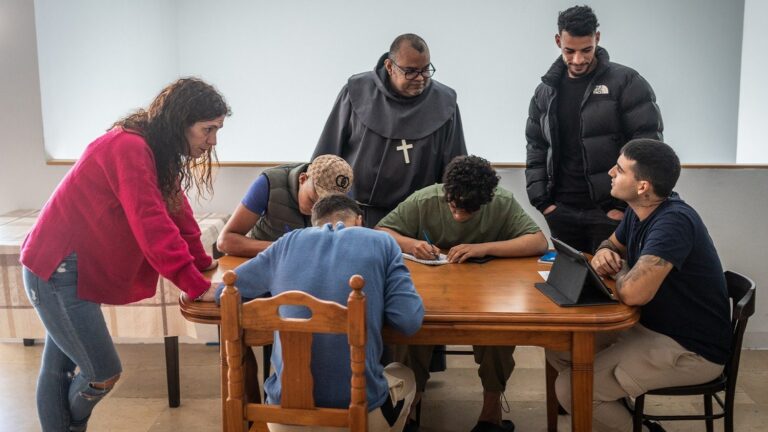Pope Francis meets with leaders of the US Organized Communities
Vatican news
Pope Francis meets with leaders of the Organized Communities of the United States, Industrial Areas Foundation-West/Southwest, at Casa Santa Marta, who presented the progress made by the Ecclesial Network of Organized Communities (RECOR).
By Vatican News
“To communicate to the Holy Father the progress made and to consult him on the next steps with RECOR” was the objective of the meeting on Wednesday, August 28, between the leaders of the Organized Communities of the United States, the Foundation of Industrial Zones-West/Southwest and Pope Francis, in his residence at Casa Santa Marta.
About twenty leaders, including priests and lay people, presented RECOR, the new Ecclesial Network of Organized Communities, to the Pope. This network, accompanied by its Catholic bishops, aims to take the lead in implementing the social doctrine of the Church, with the aim of ensuring “a way of life tinged with the Gospel” (FT, 1).
Audience with Pope Francis
During the meeting, Pope Francis encouraged leaders to build a synodal bridge “so that our peoples can have life.”
“Pope Francis greatly appreciates the ability of a people to organize themselves. The wealth of a people lies in their ability to organize themselves. He also reminded us of the words of Paul VI, who said that politics is the highest expression of charity,” said Jorge Montiel, IAF organizer in the western and southwestern United States, after the meeting with the Holy Father.
Maria Guadalupe Valdez of the Diocese of San Antonio, Texas, said the pope “encouraged us to keep moving forward, to keep acting and not to remain indifferent.”
Elizabeth Valdez, a member of the West and Southwest Industrial Zones Foundation, recalled that the network is “composed of churches, unions, universities and other organizations, with a majority participation of Catholics, as well as Protestant churches, synagogues and mosques.”
Earlier Wednesday morning, representatives from the West/Southwest Industrial Zones Foundation met with Emilce Cuda, Secretary of the Pontifical Commission for Latin America (PCAL), to continue working on strategies to build bridges between South America and North America, focusing on how to continue building these bridges for the common good.
The path to RECOR
The Ecclesial Network of Organized Communities (RECOR) was born within the Latin American Episcopal Council (CELAM) with the aim of sharing “experiences of community mysticism and transferring skills between the two hemispheres of the Americas.”
The origins of this network date back to 2021, when the Executive Commission of the Industrial Areas Foundation of the West and Southwest (IAF, USA) met for the first time with Pope Francis in Rome. Following this meeting, at the suggestion of Bishop Cantú of San José, California, and Pope Francis himself, they made contact with the Pontifical Commission for Latin America (PCAL).
After several virtual and in-person meetings, the IAF West/Southwest and the Commission began building a new North-South bridge of organized communities, under the leadership and support of the Holy Father.
Proof of this is the video message sent by Pope Francis to the IAF in 2022 and the two subsequent meetings with the Pope in Rome in 2022 and 2023.
RECOR’s first steps
In response to the common challenge facing the North and South of the American continent regarding the critical situation of marginalized migrant workers, the General Secretariat of CELAM and the Department of Justice and Peace of the USCCB, with the mediation of PCAL, held their first virtual meeting in 2023. As a result, RECOR (Ecclesial Network of Organized Communities) was born within CELAM.
Subsequently, within the framework of the seminar organized by the IAF West/Southwest under the title “Politics and Teachings of Pope Francis”, the first in-person North-South meeting of leaders of the organized communities took place on February 19-20, 2024, in San Antonio, Texas.
The second in-person meeting took place in Buenos Aires from 4 to 10 August 2024, where IAF West/Southwest leaders visited organized communities in Argentina, invited by the Familia Grande de los Hogares de Cristo.
Building bridges between organized communities
As part of this new meeting with the Holy Father, the IAF visited the offices of the Pontifical Commission for Latin America, as this new network of organized urban communities is also supported by the Building Bridges PCAL-LUC initiative.
This initiative, which began by building university bridges between students in the Americas with the personal participation of Pope Francis, is now collaborating on the construction of a second bridge between organized communities, thus fostering links between the two continents. Two new meetings are planned for 2025: one in the United States and the other in Europe.
What are organized communities?
Organized communities are urban community organizations of workers – internal and external migrants – where the entire community, accompanied by its Catholic bishops, assumes leadership in forming and implementing the social doctrine of the Church, with the aim of ensuring “a way of life perfumed by the Gospel” (FT, 1).
These are not popular organizations motivated by political, economic and sectoral or academic and ideological projects, nor do they unite to request charitable grants from NGOs.
These are urban community organizations formed “from the ground up,” as Pope Francis describes in All brothers.
Organized communities “organize hope” around the fundamental principles of the Church’s social doctrine, which include: decent work with social guarantees recognized by the ILO; universal access to resources such as clean water, housing, urban beauty, sports, public health and education; institutionalized solidarity structures such as libraries, cultural centers and clubs; and subsidiary structures led by their own leaders, walking alongside national and subnational governments in fulfilling their duties and obligations.
An effective expression of the principle of subsidiarity
In other words, the Organized Communities are an effective expression of the Catholic principle of subsidiarity in participation, as a constitutive principle of a people which is both a political and ecclesial subject.
They are the opposite of abstract institutional principles, which are constructed by “observing life from a balcony,” as Pope Francis says in Darling Amazonand detached from our social teachings.
Organized Urban Communities are formed by the decision to unite for mutual salvation, while organizing themselves to dialogue with the State, accompanied by their bishops, their public policies and their fiscal policies, to take care of people and the planet.
Vatican news
sc
